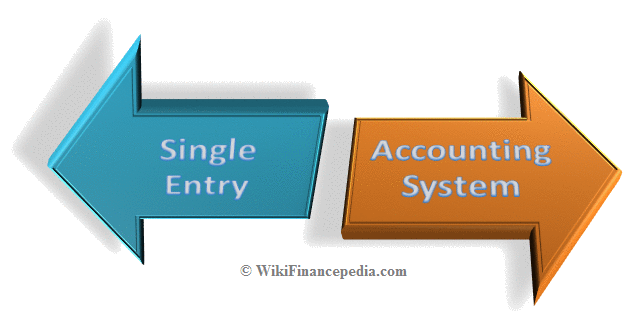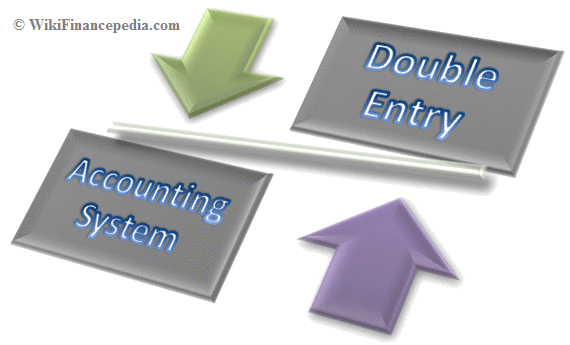Most common and important objectives of accounting for a company are usually systematically report transactions, analyzing those transactions, prepare financial statements, preparing balance sheet. This information will help in financial decision-making and important towards business activities. Accounting helps accountants as well as financial departments with several of business choices to make your organizational procedures a lot more efficient.
Examples of management decisions which are considering accounting objectives as an important information to evaluate answer for questions like: How a great deal worth is priced for the services and products to accomplish maximum profit; Whether the business must discontinue a product which is less profitable; What products and services can be developed in the event of cash shortage; Whether or not a business should give financing to a particular client or customers; Does your business requires to acquire financing and more.
What are the Objectives of Accounting?
Individuals or an organization maintain accounts state the objectives of accounting as follows:
- Systematic tracking of financial transactions records will help to maintain correct and accurate results of financial reports.
- Trading Account and Profit / Loss Account will help to summarize profit and loss for a specified period of time.
- Balance sheet will help to determining financial position of an individual or any of the business entities.
- Evaluating financial result will assist individual or a company to take right decision for the future growth based on past recorded data.
- Different business entities have to maintain different types of accounts based on taxation laws which compliance with the law of the country.
Top 10 – Objectives of Accounting
The important top 10 objectives of accounting is to determine the outcomes of the financial transactions and statements. These outcomes will assist in decision making to achieve the goals of a company.
Identification and Recording of Transactions
One of the main objectives of accounting is to identify and distinguish the financial transactions and to record these transactions in the books of accounts systematically. Thus, the true nature of every single transactions are recorded and acknowledged. In the end, every transactions are recorded in general journal and later to preserve it permanently, transactions have always been maintained in ledger accounts.
Preparing Profit and Loss Statement
It is impossible to estimate profit and loss account of a company in the even if accountancy documents are not appropriately prepared and maintained. Moreover, without the right picture of profit and loss account it is impossible to take strong decisions for an organization.
Preparing Balance Sheet
It is very easy to understand the growth of an organization based on financial data, when a proper balance sheet is actually maintained by accountant or account departments of an organization. Objectives of accounting is to assist in setting up goals and targets based on financial data of a company.
Keeping records of Cash Transactions
Cash book is a popular reserved book associated with the accounting books. Cash payments and cash receipts are recorded in this cash book. Accounting objectives is to maintain daily cash transactions, cash payments, cash balance in hand as well as cash balance at bank so that it can be over-viewed anytime from cash books. Fraudulence, misappropriation of cash and forgery get reduced simply by keeping cash book accurately and systematically.
Evaluate and Control Assets and Liabilities
For the business to run effectively, the businessman purchase assets like building, land, equipment and so forth. He has to face assorted debts and also liabilities including loan, accounts payable, bank overdraft and so on.
The position of these debtors over creditors, liabilities over assets are well-known through keeping accurate books of accounts. Here objectives of accounting is to then take the ideal decision for controlling various accounting ratios, which can assist in reducing your liabilities of an organization.
Preventing Money Defalcation and Cost
Prevention of cash defalcation (misappropriation of funds by a person trusted) through fraud and also forgery and controlling associated with the cost are also some of the main objectives of accounting. Prevention of cash defalcation plus cost control come to be easier assuming financial reports, data and accounts have been kept systematically and accurately.
Detection and Prevention of Errors
Anytime systematic financial records have always been maintained, the correct trial and errors are actually performed as a result of which no errors tend to be committed as well as any future errors in the books of accounts can also be corrected.
Detection and Prevention of Fraudulence
Because of maintaining and recording appropriate accounts, it is hard for almost any member associated with the business to perform any such financial task that can fill their pocket as well as empty the business. Because of maintaining proper books of accounts, the fraud ratio of the firm may even drop down to zero as well.
Property and Cost Audit
Appropriate property and cost audit is conducted by way towards objectives of accounting as a consequence of that right estimation benefits the business to the large profits.
Management, Income Tax and Social Audit
Aside from property and cost audit. Another objectives of accounting is to conduct management audit, income tax audit as well as social audit as a part of accounting audits. It is generally difficult for any organization to run business operations without the help of company’s books of accountant.
Conclusion
The fundamental objectives of accounting is to maintain accurate, systematic and permanent transaction records of the business and could stay retrieved as well as evaluated whenever needed. Such financial information assist to identify the speed of the growth, improvement areas as well as to take strong decisions that can be beneficial to company.
Read E-Learning Tutorial Courses - 100% Free for All
Basics of Accounting for Beginners
- Chapter 1: What is Accounting with Examples
- Currently Reading: Objectives of Accounting
- Chapter 3: Types of Accounts
- Chapter 4: Branches of Accounting
- Chapter 5: Accounting Process
- Chapter 6: What is Assets and Current Assets?
- Chapter 7: What is Liability and Current Liabilities?
- Chapter 8: What is Revenue and Expenses?
- Chapter 9: What is a Single Entry System?
- Chapter 10: What is Double Entry System?
- Chapter 11: What are Journal Entries? Format and Examples
- Chapter 12: What Is a General Ledger? Format with Example
- Chapter 13: What is a Trial Balance? Examples and Limitations
- Chapter 14: What is a Profit and Loss Statement or Income Statement?
- Chapter 15: What is a Balance Sheet? Definition, Format and Examples
- Chapter 16: What is Managerial Accounting? Role, Job and Objectives
- Chapter 17: Accounting Quiz – Basics of Accounting for Beginners Module







